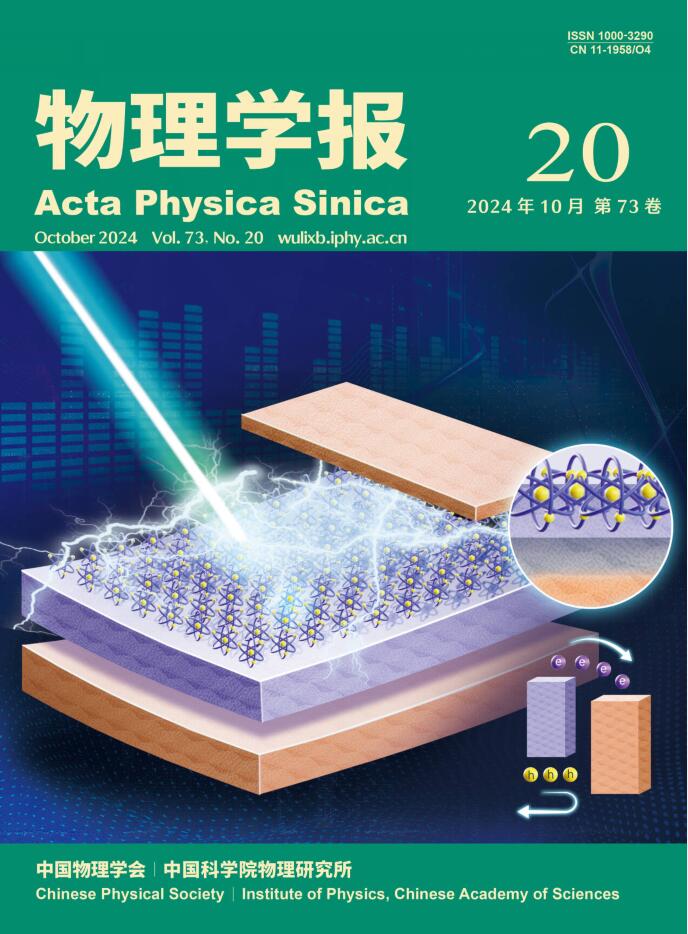The influence of the finite coherence of injected light on the ring-down cavity measurement method and the intensity integral method for the ring-down time determination
IF 0.8
4区 物理与天体物理
Q3 PHYSICS, MULTIDISCIPLINARY
引用次数: 0
Abstract
Using numerical simulation and a constructed cavity ring-down spectroscopy device, the influence of the finite coherence of the injected laser on the coupling process between the injected light and the cavity longitudinal mode was studied. The finite coherence of the injected light leads to the randomness of the coupling pulse during frequency scanning. The randomness is mainly reflected in two aspects: Firstly, as the coherence length decreases, the random amplitude range of the coupling pulse increases. Secondly, as the coherence of the injected light deteriorates, the coupling pulse changes from a single pulse with intensity evolution to continuous multiple pulses, and the overall width gradually increases with the decrease of the scanning rate. Moreover, with the deterioration of the coherence, when the light intensity of the cavity is used to turn off the injected light, the decrease in the scanning rate can cause more than one injection shut-off and ring-down event in a frequency coupling process, especially when scanning with the length of the cavity. In addition, a theoretical method is proposed to estimate the ring-down time using the strength integral of different time intervals, and the relevant experimental verification is carried out. The experimental results show that the relative error of the ring-down time obtained by the intensity integration method is smaller than that obtained by the traditional fitting method.研究了注入光的有限相干性对衰荡腔测量方法和确定衰荡时间的强度积分法的影响
利用数值模拟和自制的腔衰荡光谱装置,研究了注入激光的有限相干性对注入光与腔纵模耦合过程的影响。注入光的有限相干性导致了扫描过程中耦合脉冲的随机性。其随机性主要体现在两个方面:一是随着相干长度的减小,耦合脉冲的随机幅度范围增大;其次,随着注入光相干性的恶化,耦合脉冲由单脉冲强度演变为连续的多脉冲,且总宽度随着扫描速率的降低而逐渐增大。此外,随着相干性的恶化,当使用腔的光强来关闭注入光时,扫描速率的降低会在频率耦合过程中引起不止一次的注入关闭和衰荡事件,特别是当随腔的长度进行扫描时。此外,提出了一种利用不同时间间隔的强度积分来估计振铃时间的理论方法,并进行了相关的实验验证。实验结果表明,强度积分法得到的衰减时间相对误差小于传统拟合方法得到的衰减时间相对误差。
本文章由计算机程序翻译,如有差异,请以英文原文为准。
求助全文
约1分钟内获得全文
求助全文
来源期刊

物理学报
物理-物理:综合
CiteScore
1.70
自引率
30.00%
发文量
31245
审稿时长
1.9 months
期刊介绍:
Acta Physica Sinica (Acta Phys. Sin.) is supervised by Chinese Academy of Sciences and sponsored by Chinese Physical Society and Institute of Physics, Chinese Academy of Sciences. Published by Chinese Physical Society and launched in 1933, it is a semimonthly journal with about 40 articles per issue.
It publishes original and top quality research papers, rapid communications and reviews in all branches of physics in Chinese. Acta Phys. Sin. enjoys high reputation among Chinese physics journals and plays a key role in bridging China and rest of the world in physics research. Specific areas of interest include: Condensed matter and materials physics; Atomic, molecular, and optical physics; Statistical, nonlinear, and soft matter physics; Plasma physics; Interdisciplinary physics.
 求助内容:
求助内容: 应助结果提醒方式:
应助结果提醒方式:


